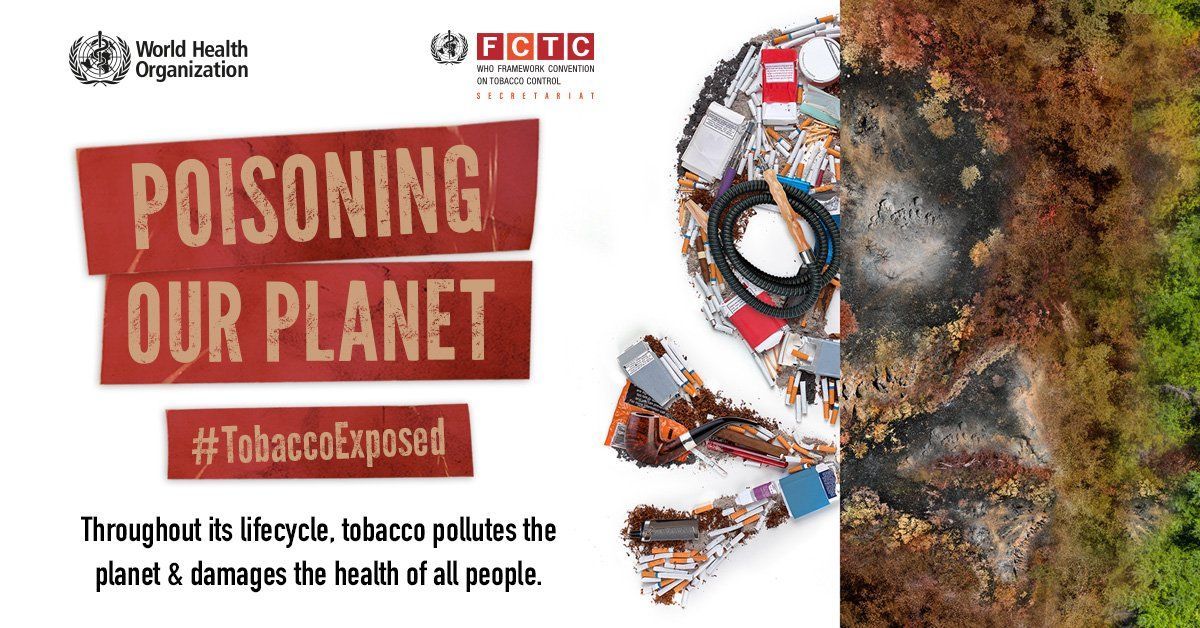CANSA Says Choose Smoke-Free Lives
The Cancer Association of South Africa (CANSA) aligns itself to the theme, ‘Tobacco - Threat to our Environment’ for World No Tobacco Day (31 May 2022). Together with the National Council Against Smoking (NCAS), Heart and Stroke Foundation of South Africa and the South African Medical Research Council, it continues campaigning for the new Control of Tobacco Products and Electronic Delivery Systems Bill to be passed by Parliament, to make it easier for South Africans to choose smoke-free lives and put an end to the threat tobacco-use poses to the environment.
Lorraine Govender, CANSA’s National Manager: Health Promotion explains, “Tobacco kills over eight million people worldwide every year. It also destroys our environment adding unnecessary pressure to our planet's already scarce resources and fragile ecosystems, through cultivation, production, distribution, consumption, and post-consumer waste. The new bill will soon be presented to Parliament to be passed to amend the existing Tobacco Control Law focussing on 100% smoke-free indoor areas; plain packaging and pictorial health warnings; banning adverts at tills in retail outlets and the sale of tobacco and related products in vending machines; and regulation of e-cigarettes. The new bill will further help decrease the impact of second-hand smoke on those not smoking and discourage youth from starting to smoke.”
Tobacco use is considered the single most important man-made cause of cancer that can be avoided. Both tobacco smoke and tobacco products for oral use, contain several cancer-causing substances contributing to tobacco related cancer. These include tobacco-specific N-nitrosamines which may be formed from nicotine in the body. It’s important to consider in the evaluation of possible long-term effects from sources of nicotine, such as e-cigarettes and products for nicotine replacement therapy, which both have a potential for life-long use. Infographic ’10 Reasons Why Electronic Cigarettes Need to be Regulated in SA’
Nicotine is the major chemical component responsible for addiction in tobacco products. A person smoking 25 cigarettes / day will absorb about 0.43 mg nicotine / kg bodyweight. Recent studies have shown that nicotine can affect several important steps in the development of cancer and suggest that it may cause aggravation and recurrence of the disease. Both cigarette smoking and smoking other forms of tobacco can cause cancers in multiple organs.
Govender adds, “Although one billion people worldwide already smoke and more will start, individuals who stop smoking lower their smoking related cancer risks effectively, with almost immediate health benefits. CANSA encourages smokers to quit and put their health and the health of others first.”
How CANSA Helps
CANSA’s awareness campaigns rolled out at schools and universities are aimed at creating messaging to effectively prevent the start of tobacco use, especially for youth and young adults.
Govender states, “We’re currently working with the University of KwaZulu-Natal on the Multi-National Lung Cancer Project to create awareness in targeted underserviced communities about lung cancer through door-to- door visits. Our aim is to showcase that early detection of lung cancer can save lives and improve the long-term quality of life.”
Another initiative is offering support to help people quit smoking via the CANSA online eKickbutt support programme giving helpful tools to quit. CANSA further works together with like-minded stakeholders in South Africa, South African Medical Research Council, The National Council Against Smoking and international partners, Campaign for Tobacco Free Kids, to provide the scientific evidence to drive the development of effective tobacco control policies to assist in dramatically reducing tobacco use, lower cancer risk and health-related disparities.
“We recently funded a qualitative research study on electronic cigarettes in collaboration with the UCT Knowledge Co-op which focussed on the knowledge, perceptions, and attitudes among university students,” added Govender.
CANSA also plays an important watchdog role to ensure compliance to the current tobacco legislation by addressing concerns from the public on issues of non-compliance via info@cansa.org.za.













